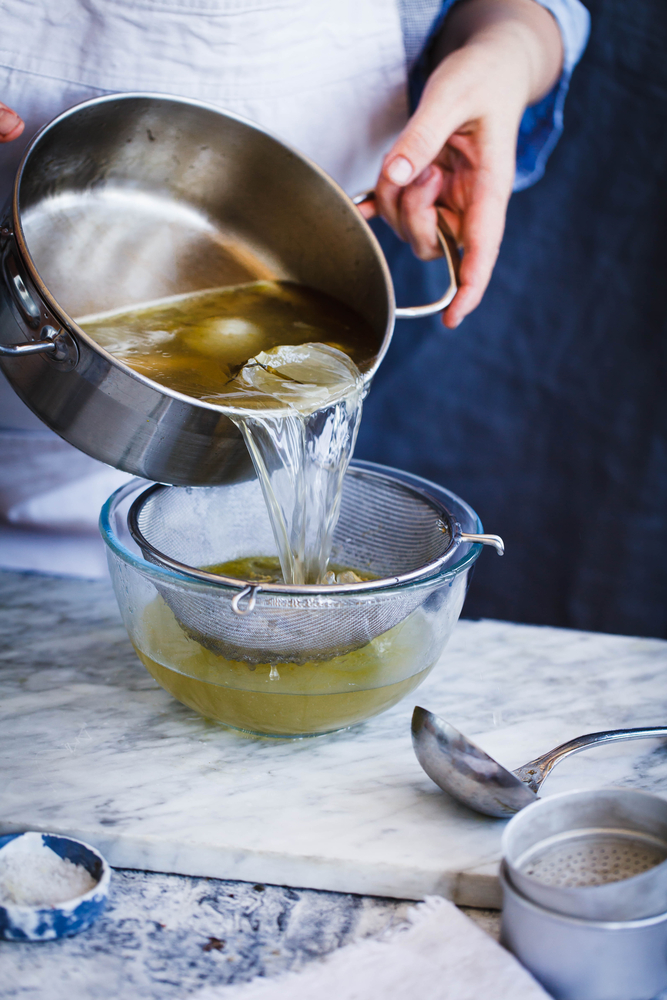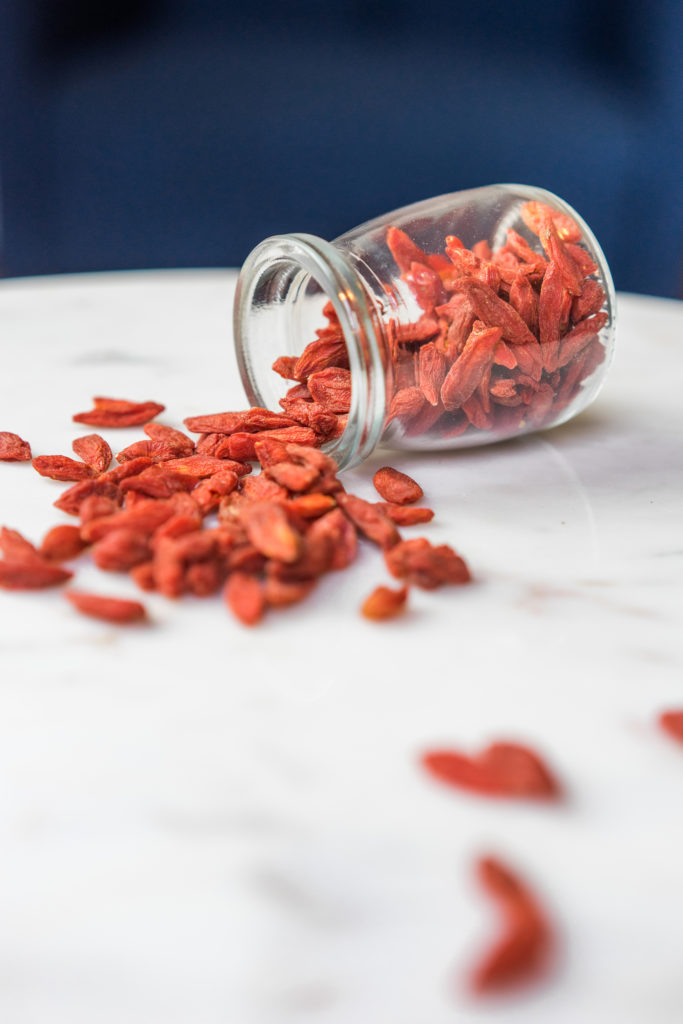BLOOD BUILDING 101
The Complete Guide To Nourishing Your Blood

First of all, let’s get some definitions out of the way.
When people talk about blood in TCM, they don’t mean the red liquid that flows through your veins. It’s the same thing with organs in TCM. When people talk about Livers in connection to Chinese medicine, they’re not talking about the literal organ. In both cases, they’re talking about the systems.
You see, TCM thinks of the human body as a bunch of different overlapping systems that work together to make you healthy. When these systems become imbalanced or dysfunctional, you’re more likely to become sick or unhappy.
 So “blood” in TCM isn’t just the same blood that comes out of a cut. It’s also part of your energy force. Known as Xue in Chinese, blood flows throughout the body bringing warmth and nourishment. In this sense, blood is a kind of Qi. In TCM, blood is responsible for good circulation. If your blood is undernourished or not circulating well, you might notice you can’t sleep very well or you’re feeling anxious.
So “blood” in TCM isn’t just the same blood that comes out of a cut. It’s also part of your energy force. Known as Xue in Chinese, blood flows throughout the body bringing warmth and nourishment. In this sense, blood is a kind of Qi. In TCM, blood is responsible for good circulation. If your blood is undernourished or not circulating well, you might notice you can’t sleep very well or you’re feeling anxious.
In Traditional Chinese Medicine, blood is mostly made from eating and digesting food. It’s made in the Spleen, Heart, Lungs, and Liver and spreads throughout the rest of the body from there. Your Qi pumps blood through your body to feed these organs, which then create more Qi. If you eat right, exercise, and get enough rest, you should be like a well-oiled machine, creating Qi that creates blood and so on.
Why Blood Building Matters
But if your blood isn’t healthy and nourished, your “machine” won’t run so well. That’s because having the right blood levels affects your mental health, brain power, and ability to fall asleep and stay asleep.
There are two major problems associated with blood in Chinese medicine are blood stagnation and blood deficiency.
- Blood deficiency: Bleeding through wounds or menstruation can cause a blood deficiency, but it’s usually the result of poor nutrition. If you have a blood deficiency, you might notice symptoms like pale, dry skin, insomnia, and tight muscles. It is similar to anemia.
- Blood stagnation: Blood stagnation can also cause blood deficiency. Stagnation happens when your Qi doesn’t push your blood throughout your body enough. If you notice you have numbness or tingling in your extremities, a purplish complexion, or sharp pains, you might have stagnant blood.
How To Nourish Your Blood
If you’re struggling with blood deficiency, the best way to build up your blood is by eating nutritional food. So if your regular diet is pizza, pasta, and fast-food, try eating more organic, seasonal whole foods.
But what if you already have a pretty decent diet but still need to nourish your blood? There are some foods that are known as particularly “blood-building” in TCM. Keep an eye out for foods that are rich in iron, B12, folic acid, vitamin C, and protein.
Here are the most effective ones to incorporate into your diet.
Broths
 In TCM, blood is made in the bone marrow, among other places. So when you eat foods made with bones like bone broth or stock, it can do a lot to nourish your blood. These foods also have lots of protein and good fat, so they’ll keep you full and satisfied. They’re the perfect comfort food.
In TCM, blood is made in the bone marrow, among other places. So when you eat foods made with bones like bone broth or stock, it can do a lot to nourish your blood. These foods also have lots of protein and good fat, so they’ll keep you full and satisfied. They’re the perfect comfort food.
Meat
If you eat meat, it’s one of the best foods to help with a blood deficiency. Meat and other animal proteins like eggs tend to have a lot of iron that your body can easily absorb.
Liver tends to be one of the best meats for building blood. The key is to never overcook it. Try sauteeing it in coconut oil and add a few drops of sesame oil at the end.
If you’re eating meat a few times a week and still have blood deficiency, you might need to try iron supplements. Make sure to talk to your doctor or TCM practitioner before you add any supplements to your routine, though. You don’t want to have too much iron–that’s a whole other problem!
Chinese Red Dates and Goji Berries
 Chinese red dates, also known as jujube, and goji berries are incredibly important in TCM, and they’re known to be some of the best foods to eat for health and long life. That’s because they’re packed to the brim with Vitamin C, iron, and calcium. They also boost the immune system and help with insomnia.
Chinese red dates, also known as jujube, and goji berries are incredibly important in TCM, and they’re known to be some of the best foods to eat for health and long life. That’s because they’re packed to the brim with Vitamin C, iron, and calcium. They also boost the immune system and help with insomnia.
Beans and Legumes
If you’re vegetarian or vegan and don’t eat meat or bone broth, try incorporating more beans and legumes into your diet to help with blood deficiency. Black beans are a great choice because they have protein, fiber and antioxidants. The Chinese generally prefer red beans and foods for building blood, but you should also try adzuki, kidney beans, soy beans, or edamame. Just make sure to balanced your bean intake by using grains to get that amino acid profile. Fermented beans like miso are less likely to cause hormonal problems or a build-up of phytic acid – a few servings a week should do the trick!
Leafy Greens
Leafy greens like spinach, kale, and chard are jam-packed with nutrients that will help to nourish and notify your blood. They contain chlorophyll which is very similar to hemoglobin, but instead of iron at the center it has magnesium. Try throwing spinach in your omelet or tossing some kale in a bean soup. You’ll load up on Vitamin A, which helps build white blood cells, Vitamin K to support platelet function, and Calcium, which helps form blood clots on cuts and scrapes.
In TCM, food is a powerful medicine. So if you notice signs of blood deficiency like anxiety, insomnia, paleness, and poor memory, try eating some of these foods. They’re jam-packed with good-for-you vitamins and nutrients that will help build up your blood and have you feeling better in no time!
Newer
Spleen Health 101: The Best Herbs For A Healthy Spleen
Older
Baby Steps to a Better You in 2021
Comments (0)
Leave a reply
You must be logged in to post a comment.




